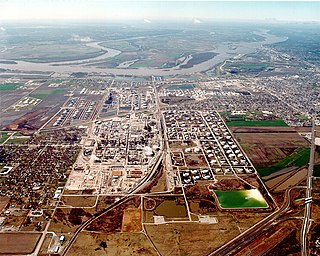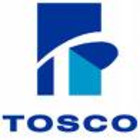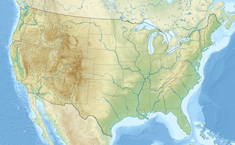Standard Oil Company, Inc., was an American oil production, transportation, refining, and marketing company that operated from 1870 to 1911. At its height, Standard Oil was the largest petroleum company in the world, and its success made its co-founder and chairman, John D. Rockefeller, among the wealthiest Americans of all time and among the richest people in modern history. Its history as one of the world's first and largest multinational corporations ended in 1911, when the U.S. Supreme Court ruled that it was an illegal monopoly.

Tesoro Corporation, known briefly as Andeavor, was a Fortune 100 and a Fortune Global 500 company headquartered in San Antonio, Texas, with 2017 annual revenues of $35 billion, and over 14,000 employees worldwide. Based on 2017 revenue, the company ranked No. 90 in the 2018 Fortune 500 list of the largest United States corporations by total revenue.
ConocoPhillips Company is an American multinational corporation engaged in hydrocarbon exploration and production. It is based in the Energy Corridor district of Houston, Texas.
Petróleos de Venezuela, S.A. is the Venezuelan state-owned oil and natural gas company. It has activities in exploration, production, refining and exporting oil as well as exploration and production of natural gas. Since its founding on 1 January 1976 with the nationalization of the Venezuelan oil industry, PDVSA has dominated the oil industry of Venezuela, the world's fifth largest oil exporter.

Marathon Petroleum Corporation is an American petroleum refining, marketing, and transportation company headquartered in Findlay, Ohio. The company was a wholly owned subsidiary of Marathon Oil until a corporate spin-off in 2011.

Phillips Petroleum Company was an American oil company incorporated in 1917 that expanded into petroleum refining, marketing and transportation, natural gas gathering and the chemicals sectors. It was Phillips Petroleum that first found oil in the North Sea on December 23, 1969, at a position that was later named Ekofisk.

The Phillips 66 Company is an American multinational energy company headquartered in Westchase, Houston, Texas. Its name, dating back to 1927 as a trademark of the Phillips Petroleum Company, helped ground the newly reconfigured Phillips 66. The company today was formed ten years after Phillips merged with Conoco to form ConocoPhillips, the merged company spun off its refining, chemical, and retail assets into a new company bearing the Phillips name. It began trading on the New York Stock Exchange on May 1, 2012, under the ticker PSX.

Bayway Refinery is a refining facility in the Port of New York and New Jersey, owned by Phillips 66. Located in Linden and Elizabeth, New Jersey, and bisected by Morses Creek, it is the northernmost refinery on the East Coast of the United States. The oil refinery converts crude oil into gasoline, diesel fuel, jet fuel, propane and heating oil. As of 2007, the facility processed approximately 238,000 bbl/d (37,800 m3/d) of crude oil, producing 145,000 bbl/d (23,100 m3/d) of gasoline and 110,000 bbl/d (17,000 m3/d) of distillates. Its products are delivered to East Coast customers via pipeline transport, barges, railcars and tank trucks.

The Wood River Refinery is an oil refinery located in Roxana, Illinois, approximately 15 miles (24 km) north of St. Louis, Missouri, on the east side of the Mississippi River. The refinery is currently owned by Phillips 66 and Cenovus Energy and operated by the joint-venture company WRB Refining, LLC (WRB). WRB was formed on 1 July 2007, with Encana taking a 49% interest in Wood River and also Phillips 66's Borger refinery. Encana subsequently spun off oil sands producer Cenovus and ConocoPhillips spun off Phillips 66. In return for a 49% stake in the refinery, ConocoPhillips gained a joint interest in two Alberta oil sands (bitumen) heavy oil projects: Christina Lake (Alberta) and Foster Creek. ConocoPhillips’ interest was sold to Cenovus in May 2017, leaving Cenovus the sole owner and operator of the assets. Cenovus uses SAGD technology at those sites.

The San Francisco Refinery is an oil refinery complex located in Rodeo, California and in Arroyo Grande, California, in the San Francisco Bay Area and Santa Maria Valley. These two locations, although more than 200 miles apart, are considered one location. They are directly connected by a 200-mile pipeline. The refinery is currently owned and operated by Phillips 66, a downstream company with midstream and chemical businesses spun off from ConocoPhillips in 2012.

Tosco was an independent US based petroleum refining and marketing corporation based in Stamford, Connecticut. It was founded in 1955 in Santa Monica, California by A&P heir Huntington Hartford, and originally focused on extracting oil from oil shale and developing alternative energy sources.
The Cherry Point Refinery is an oil refinery near Bellingham, Washington, north of Seattle in the United States. Owned by BP, is the largest refinery in Washington state. The last refinery to be built from the ground up in the U.S., it is located about seven miles (11 km) south of Blaine and eight miles (13 km) northwest of Ferndale, a few miles south of the Canada–US border, on the Strait of Georgia between Birch Bay and Lummi Bay.
The National Oil Corporation is the national oil company of Libya. It dominates Libya's oil industry, along with a number of smaller subsidiaries, which combined account for around 70% the country's oil output. Of NOC's subsidiaries, the largest oil producer is the Waha Oil Company (WOC), followed by the Arabian Gulf Oil Company (Agoco), Zueitina Oil Company (ZOC), and Sirte Oil Company (SOC).
Cenovus Energy Inc. is an integrated oil and natural gas company headquartered in Calgary, Alberta.

PBF Energy Inc. is a petroleum refiner and supplier of unbranded transportation fuels, heating oils, lubricants, petrochemical feedstocks, and other petroleum products. Headquartered in Parsippany, New Jersey, the company's refineries include facilities in Chalmette, Louisiana; Toledo, Ohio; Port of Paulsboro in Gibbstown, New Jersey; the Delaware City Refinery in Delaware City; the former ExxonMobil refinery in Torrance, California; and the former Shell refinery in Martinez, California. PBF produces a range of products including gasoline, ultra-low-sulfur diesel (ULSD), heating oil, jet fuel, lubricants, petrochemicals and asphalt.
Trainer Refinery is an oil refining facility located in Trainer, Delaware County, Pennsylvania. The facility is about downstream from the Port of Chester and fifteen miles southwest of Philadelphia along the Delaware River. Stoney Creek is along its northern perimeter. The Trainer Refinery is owned by Monroe Energy, LLC, a subsidiary of Delta Air Lines. Monroe Energy acquired the facility in June 2012. Since that time, the company has focused on producing high-quality transportation fuels at the refinery. In addition to jet fuel, the facility also produces gasoline, diesel, and home heating oil.

The Puget Sound Refinery is an oil refinery on March Point near Anacortes, Washington, United States. It is operated by HF Sinclair and is one of the largest employers in Skagit County. The refinery has a capacity of 145,000 barrels a day, making it the 52nd largest in the United States, in 2015, with facilities that include a delayed coker, fluid catalytic cracker, polymerization unit and alkylation units. Based on the secondary processing units in place, the facility likely follows a 3-2-1 crack spread. HF Sinclair’s refinery produces three grades of gasoline, fuel oil, diesel fuel, propane and butane. This plant is currently the only refinery in Washington state unable to accommodate tight oil via rail. The permitting process is currently underway for the proposed 60,000 b/d unloading capacity of the East Gate Rail Project.
The Whitegate refinery, near Whitegate, County Cork, is Ireland's only oil refinery. It has a capacity of 75,000 barrels of oil per day (bpd), sufficient to provide 40 percent of Ireland's fuel requirements. It was commissioned in 1959 and was redeveloped several times and produces a range of petroleum products.

Following the 1911 Supreme Court ruling that found Standard Oil was an illegal monopoly, the company was broken up into 43 different entities, divided primarily by region and activity. Many of these companies later became part of the Seven Sisters, which dominated global petroleum production in the 20th century, and became a majority of today's largest investor-owned oil companies, with most tracing their roots back to Standard Oil. Some descendants of Standard Oil were also given exclusive rights to the Standard Oil name.












